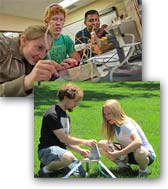
Your browser is set to reject cookies. You must accept a cookie from the Teacher Enhancement Program Online Registration System web site in order to proceed.
If you do not know how to enable cookies, you can visit http://www.google.com/cookies.html for assistance.
If you would like to learn more about cookies, you can visit http://en.wikipedia.org/wiki/HTTP_cookie for more information.
If you do change your browser settings to enable cookies, you may need to close your browser and reopen it for the change to take effect. You can also try clicking on a course listed at the left of this page several times to allow the necessary cookie to be transmitted and accepted.


